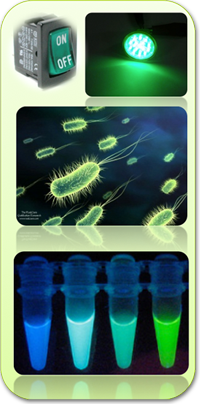Team:ITESM Mexico
From 2011.igem.org
| Line 1: | Line 1: | ||
{{Team:ITESM_Mexico/Top}} | {{Team:ITESM_Mexico/Top}} | ||
| - | + | [[File:Sensecoli-resumen.png|left]] | |
Our project is a biosensor for arabinose build in an E. coli carcass, it will measure the concentration levels of arabinose by reporting two different fluorescent proteins, GFP for a low concentration level and CFP for a High Concentration level. | Our project is a biosensor for arabinose build in an E. coli carcass, it will measure the concentration levels of arabinose by reporting two different fluorescent proteins, GFP for a low concentration level and CFP for a High Concentration level. | ||
Revision as of 23:37, 13 July 2011
Our project is a biosensor for arabinose build in an E. coli carcass, it will measure the concentration levels of arabinose by reporting two different fluorescent proteins, GFP for a low concentration level and CFP for a High Concentration level.
Based on the work of the Tokyo-NoKoGen 2010 project, Chiba University UNAM-Genomics México 2010, British Columbia, Cambridge and ITESM campus Monterrey we fused two ideas: creating a sensor that can give a measure at our command capable of being reset. This allows us to get a measure signal of the concentration of the arabinose when we want it, improving current lock-and-key mechanisms.
To achieve this, a novel mechanism was designed using two light receptors, one activates the arabinose sensing mechanism whereas the other will activate the reset mechanism, the later will start a quick degradation of the reporter proteins and will reverse the activation of its mechanism of expression, allowing the cell to be set as it was originally. Exposing our culture to green light will activate this mechanism, and it will be deactivated without green light exposure.
The results will be obtained by reading the amount of light with a flux-cytometer. This way we will not only obtain a concentration range but a precise concentration reading. We hope that in the future this biosensor will work as a carcass to detect a wide variety of substances.
 "
"



